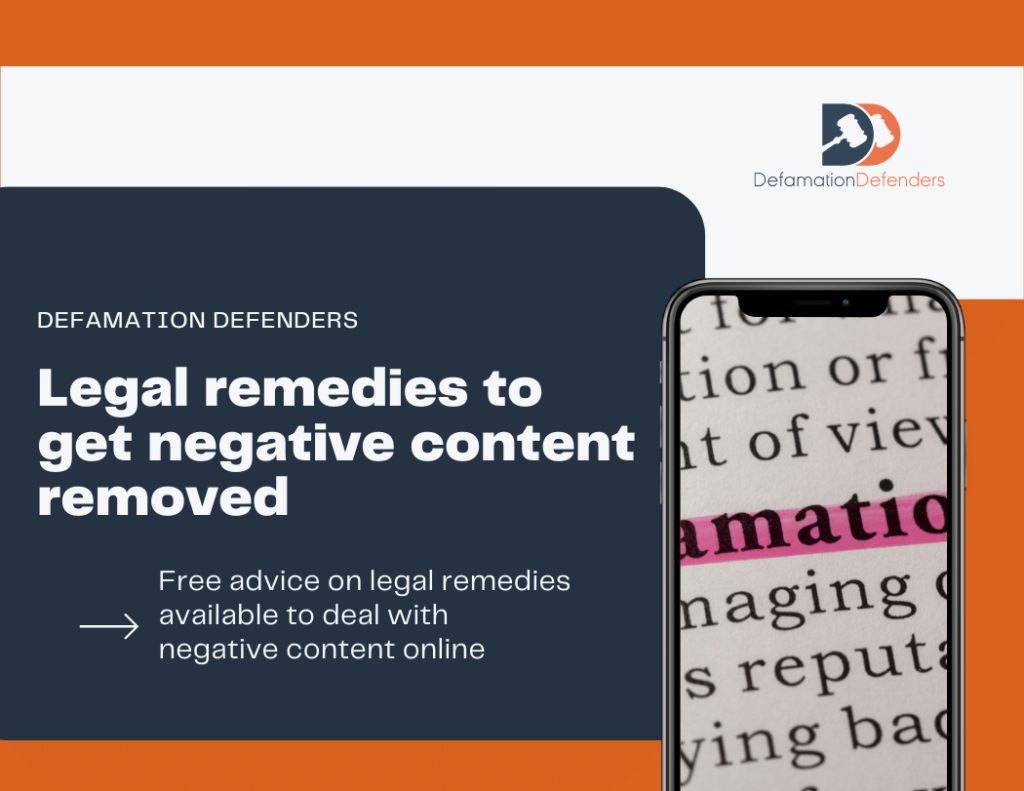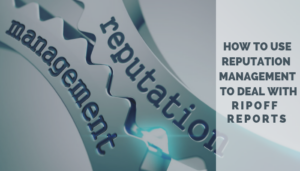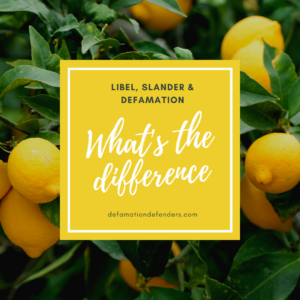In today's digital age, anyone with an internet connection has the power to publish content online. While this accessibility has many benefits, it also means that false and damaging information can quickly spread and harm individuals or businesses. Defamatory content can cause significant damage to one's reputation, but luckily there are legal remedies available to remove such content from the internet. In this blog post, we'll explore five effective ways to take down defamatory material and protect your online reputation.
Table of Contents
Introduction to Defamation
The internet has become a breeding ground for defamation. With the ease of anonymous posting and the wide reach of the internet, anyone can say anything about anyone without consequence. This has led to an increase in defamation cases, as people try to protect their reputation online.
Defamation is defined as a false statement made about someone that harms their reputation. In order to prove defamation, the plaintiff must show that the statement was false and that it caused them harm. Defamation can be either libelous or slanderous. Libel is a written defamatory statement, while slander is a spoken defamatory statement.
There are many legal remedies available to those who have been defamed online. The first step is to contact the person who made the defamatory statements and ask them to remove the content. If they refuse, you can send them a cease and desist letter demanding that they take down the content or face legal action.
If the person refuses to comply with the cease and desist letter, you can file a lawsuit against them for defamation. In order to win a defamation lawsuit, you must be able to prove that the statements were false and that they caused you harm. You will also need to show that the person who made the statements knew they were false or acted negligently in making them.
Defamation lawsuits can be costly and time-consuming, so it is important to consider all of your options before taking legal action. If you are successful in
What are the Legal Remedies available
There are a few different legal remedies available to help remove defamatory content from the internet. One is to file a lawsuit against the person or entity who posted the content. This can be tricky, as you have to prove that the person or entity knew the information was false at the time they posted it, and that they intended to harm you with the false information. Another legal remedy is to send a cease and desist letter to the person or entity who posted the content. This demands that they take down the offending content. If they do not comply, you can then take them to court. You can try to work with the website or web service provider where the defamatory content is hosted. Many websites and providers have policies against hosting offensive or illegal content, and will take down such content if they are made aware of it.
How to Identify Defamatory Content
When you come across something online that is clearly untrue and damaging to your reputation, it can be difficult to know what to do. You might feel angry, upset, and helpless. But there are legal remedies available to help you remove defamatory content from the internet.
To prove that something is defamatory, you need to show that it is false and that it has caused or is likely to cause harm to your reputation. Defamation can include things like libel (written defamation) and slander (spoken defamation). Click here to learn about the difference.
If you think you have been the victim of online defamation, the first step is to identify the content in question. This can be tricky, as online content can spread quickly and be reposted on multiple websites. Try doing a search for your name or other identifying information on the website where the content originally appeared, as well as on any other websites where you think it might have been reposted.
Once you have found the defamatory content, take a screenshot or copy and paste the text into a document so that you have evidence of what was said. This will be important if you decide to take legal action.
If possible, try to find out who posted the original message or comment. This information should be available on the website where it was posted. If not, you may be able to find it through a reverse IP lookup (a tool that allows you to see which websites are hosted on a particular IP address). Once you
Cease and Desist Letter
When someone posts false and defamatory statements about you online, it can be difficult to remove the content. However, there are a few legal remedies available to help you get the content removed. One option is to send a cease and desist letter to the person who posted the content.
A cease and desist letter is a formal request that the person stop posting defamatory content about you. The letter will also state that if they do not comply, you will take legal action against them. This option is often successful in getting the content removed, as most people do not want to risk being sued.
Another option is to file a complaint with the website or platform where the content is hosted. Most websites have terms of service that prohibit users from posting defamatory content. If you can prove that the content is defamatory, the website will usually take it down.
If these options don't work, you may need to file a lawsuit against the person who posted the content. This is usually a last resort, as it can be expensive and time-consuming. But if you can prove that the statements are false and damaging to your reputation, you may be able to win damages from the person who posted them.
Digital Millennium Copyright Act (DMCA) Takedown Notice
If you are the victim of false or defamatory content posted online, you may be able to have it removed using a Digital Millennium Copyright Act (DMCA) takedown notice.
A DMCA takedown notice is a formal request that a web host or service provider remove allegedly infringing or illegal content from their servers. To be effective, a DMCA takedown notice must be sent by the copyright owner or their authorized representative.
The DMCA provides safe harbor protections for online service providers who comply with takedown notices in good faith. This means that service providers cannot be held liable for damages if they take down content that is later found to be non-infringing or not illegal.
To file a DMCA takedown notice, you will need to provide the following information:
- Your name, address, and contact information
- The URL of the allegedly infringing or illegal content
- A statement from you confirming that you have a good faith belief that the content is infringing or illegal and should be removed
- A statement from you declaring under penalty of perjury that the information in your notice is accurate and that you are the copyright owner or authorized representative
Court Order
A court order is the most effective legal remedy to remove defamatory content from the internet. A court order can be obtained by filing a defamation lawsuit and proving that the content is false and has caused you harm. Once a court order is issued, the person or entity responsible for the defamatory content must remove it from the internet immediately. If they fail to do so, they can be held in contempt of court and may face harsh penalties, including jail time.
Removal of Search Engines Results
In order to remove search engine results that contain defamatory content, you will need to send a notice to the search engine provider. This notice must include:
- The specific URL of the page containing the defamatory content
- A statement from you indicating that the content is false and defamatory
- A request for the removal of the page from the search engine's results
If you are able to provide evidence that the content in question is indeed false and defamatory, this will increase your chances of having the page removed.
Concluding remarks on the removal of defamatory content
In conclusion, the legal remedies available to remove defamatory content from the internet are effective if you know how to use them. The most popular options include cease and desist letters, DMCA takedown notices, and filing a civil lawsuit against the person responsible for posting the material. Each of these options has its own advantages and disadvantages that need to be considered when choosing which one is right for you. Ultimately, it’s important to make sure that your legal rights have been protected by taking action as soon as possible after discovering any defamatory content online.







